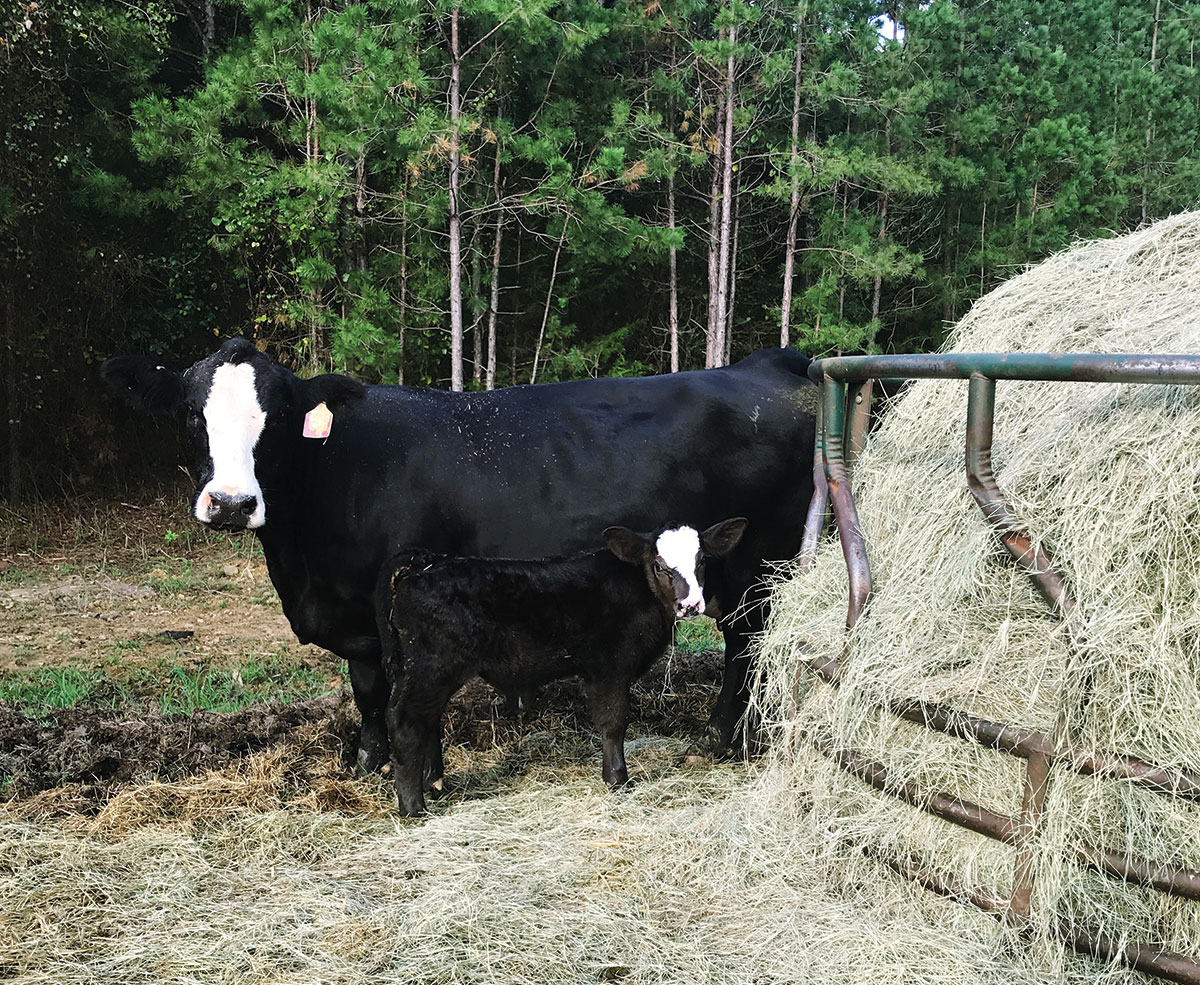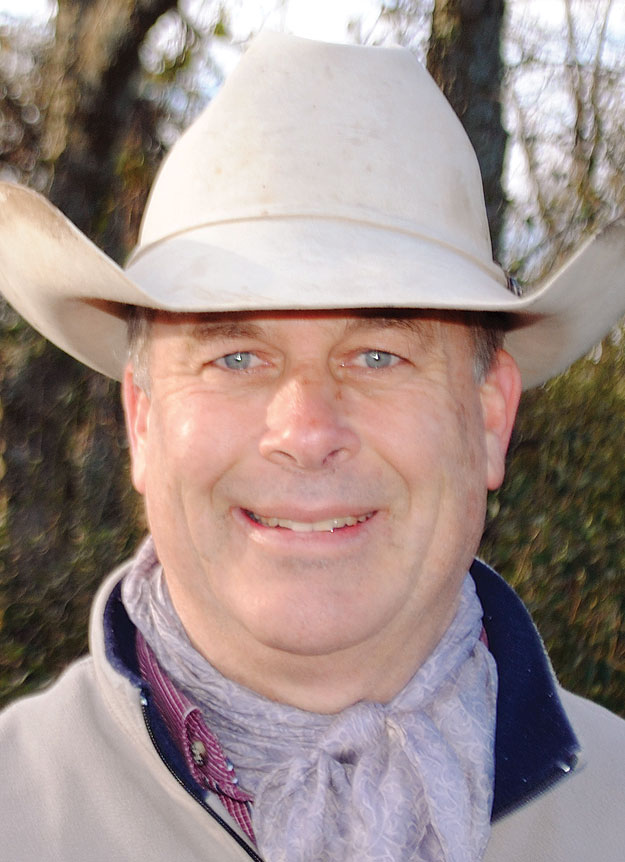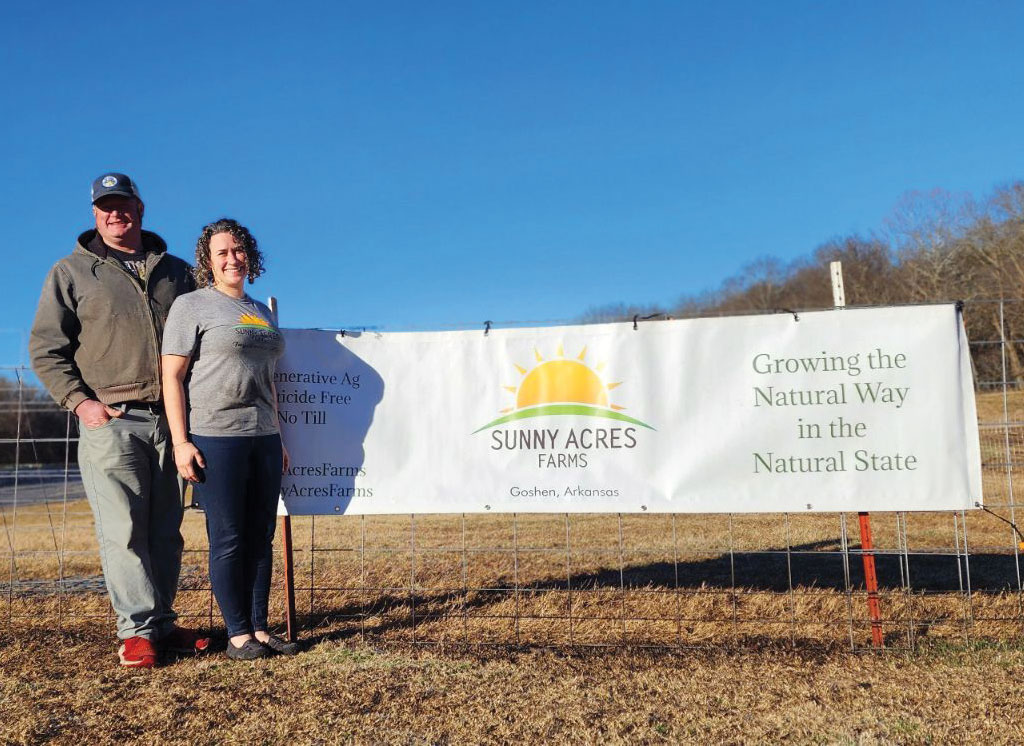
Couple takes their experience back to the farm
ELKINS, ARK. – Hospitality and food preparation has been a part of Brian Foster’s life for as long as he can remember. Both he and his fiancee, Becca Davis, spent many years in the restaurant and bar industry.
Now, the couple, who are partners in owning Sunny Acres Farms outside Elkins, Ark., hope to start hosting multiple events throughout the year on the 68-acre property that gives them space to grow more than 40 varieties of produce and raise chickens, sheep and goats. The farm is certified as “Naturally Grown.”
This spring, Sunny Acres Farms will host a booth at its third local farmers’ market in Northwest Arkansas: they will start at the Rogers Farmers Market in addition to their existing booths at the Goshen and Fayetteville markets. Rogers opens March 23, Goshen opens May 9, and Fayetteville is open year round with the outdoor market on the Fayetteville Square beginning April 6.
Their incredibly diverse offerings also make their eight-week, spring and summer CSA subscription programs more robust.
“We try to keep a diverse selection for our CSA Program so they’re not having the same thing week after week,” Brian said.
The spring CSA program starts April 16.
“Each week you will receive a handpicked bag of fresh produce curated to go along with some of our favorite recipes that we include with each week’s bag, Every bag is valued at an average of $25,” according to the site. “Items may include; lettuces, spinach, arugula, collards, chard, kale, onions, garlic, herbs, peas, broccoli, cauliflower, cabbage, kohlrabi, fennel, radishes, carrots, beets, potatoes and more.”
Whether they are hosting an onsite event, offering CSA subscriptions, or inviting the public to one of their three farmers’ market booths, Brian, Becca, and everyone else involved with Sunny Acres Farms are focused on a specific mission.
“We see how our society has lost its connection to food. In just a few generations, we have lost the diversity and creativity that comes with eating with the seasons. We no longer appreciate how food is grown or how it gets to us. We hope to help that, by helping educate people on what grows in season and by sharing our favorite dishes people will be more encouraged to eat a seasonal diet.”
Brian’s love for food started as a kid when he would help his grandparents on both sides of the family with their respective gardens, as well as pickling and canning their produce. He’s also had his own garden at every place he’s rented as an adult.
Professionally, Brian’s focus has always been on food in one form or another.
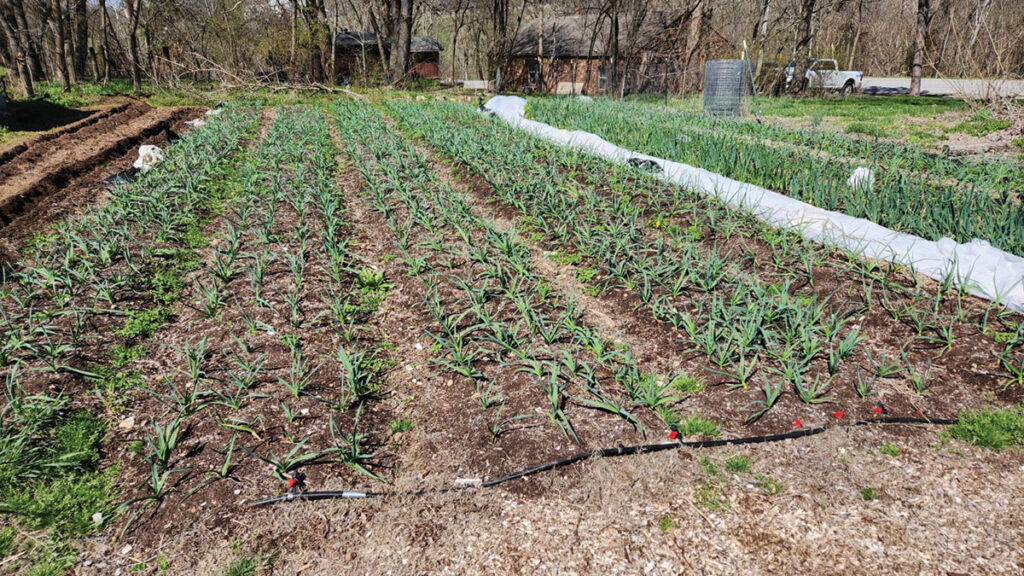
“I’ve worked as a general manager or a bar manager since 2006,” he said. “I always wanted to own my own restaurant so that’s the line of work I chose to pursue.”
That is, until the COVID-19 pandemic hit.
“That’s when all the restaurants and bars closed down,” he said. “I took it as a sign (that I should be doing something different).”
He and Becca already gardened in a 1,500-square-foot plot and they sold the excess that they didn’t eat themselves to friends and family. Brian learned about the new program Center for Arkansas Farms and Food (CAFF) Farm School. CAFF is a program of the Arkansas Agricultural Experiment Station through the University of Arkansas System Division of Agriculture.
He was accepted into the 11-month program, which “trains farmers and food entrepreneurs with the production and business skills and resources necessary to develop resilient businesses that sustain our ecosystem, our land,and our communities,” according to the CAFF website. This training is all experiential and hands-on, Brian explained.
“It’s a very inclusive and intensive class,” he said. “We were able to have access to all the tools and equipment we needed. The program covers all scales of farming.”
That’s when things starting progressing.
“It’s a whole different ball game to garden vs doing production and a CSA.”
Brian and Becca had learned several farming modalities that they continue to do and scale today. For one, they use succession farming where they plant complementary produce consecutively.
The biggest modality, however, is using regenerative agriculture techniques. They not only use the technique, they actively educate community members about it and how they, too, can use the practice in their own gardens.
“Regenerative agriculture is the practice of using cover crops to maintain and restore soil health while employing no-till methods of soil preparation and planting,” Becca and Brian explain on their website. “This maintains the microorganism life in the soil, which stimulates healthy plant growth and even helps deter pests. Cover cropping also prevents soil erosion and continues to sequester carbon through the winter months when most other things are not growing.”
Brian further explained that “instead of feeding the plants, we are feeding the soil. We feel that we can change our food system by capturing the carbon through the soil.”
What’s more, they hope to see more small farmers and gardeners use the regenerative techniques because not only is it more sustainable financially, it has the potential to help the entire planet.
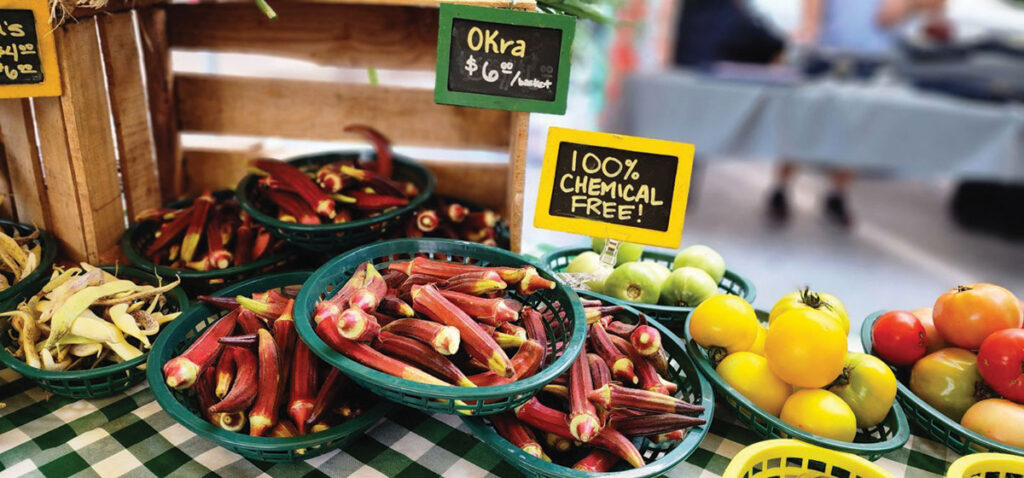
“If we did this all over the country, it would help the carbon footprint issues we’re having now,” Brian said.
Since graduating from CAFF, Brian, along with Becca, have worked to grow the farm, all with little to no debt. They are a two-time recipient of a KIVA.org loan, which is a global zero percent financing program for qualifying entrepreneurs.
“The first year, we didn’t have a walk-in cooler or irrigation,” Brian said. That meant we used a lot of ice and overhead sprinklers. Year two, we were able to add the drip lines and underground irrigation. We’ve learned to upgrade when we could afford it.”
Last fall, they had the opportunity of a lifetime when they moved from their half-acre property in Goshen to their 68-acre livestock farm near Elkins.
“We were really packed in there,” Brian said of their first, much smaller farm. “But we showed that you can make it work off of that small of land.”
The much-larger space opens many new opportunities, especially when it comes to the livestock. They have more than 50 sheep, two dozen chickens, and three goats.
“We use the goats for milk just for ourselves and our CSA,” Brian said.
The livestock are fed through rotational grazing on five different plots spread over 30 acres. “We’re still figuring out the livestock part,” he said.
As they progress into 2024, the plan is to continue learning about livestock management and looking forward to hosting events throughout the year. Eventually, the dream is to build an event venue on the property.
They are also employing even more farming techniques including high tunnels for the crops, which will allow them to plant earlier in the spring than would otherwise be possible.
“It protects the more sensitive plants,” Brian said.





